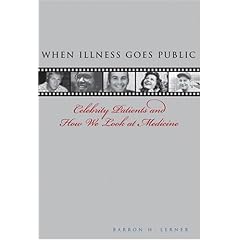How Much Confidence Should We Have in the Doctor's Account of FDR's Death?
Although Bruenn’s account overthrew earlier versions that had concealed the seriousness of Roosevelt’s condition, it has never been adequately scrutinized. Why did Bruenn decide to go public? Did others assist in the writing of the article? And, finally, was Bruenn’s claim that Roosevelt remained mentally capable until his death based on clear-cut facts or a selective reading of the evidence?
 It is beyond dispute that Bruenn did a great service to history by telling his version of the story. Roosevelt’s primary doctor, Ross McIntire, had always maintained that Roosevelt was essentially healthy before he was struck down by a cerebral hemorrhage on April 12, 1945. In fact, as Bruenn described in his article, published in the April 1970 edition of the Annals of Internal Medicine, Roosevelt had severe high blood pressure and congestive heart failure that the cardiologist Bruenn tried his best to manage.
However, the Annals article contained no information about why or how Bruenn decided to write and, in the process, break his patient’s confidentiality. But records from the FDR Library and the American College of Physicians, which publishes the Annals, provide the back story.
It is beyond dispute that Bruenn did a great service to history by telling his version of the story. Roosevelt’s primary doctor, Ross McIntire, had always maintained that Roosevelt was essentially healthy before he was struck down by a cerebral hemorrhage on April 12, 1945. In fact, as Bruenn described in his article, published in the April 1970 edition of the Annals of Internal Medicine, Roosevelt had severe high blood pressure and congestive heart failure that the cardiologist Bruenn tried his best to manage.
However, the Annals article contained no information about why or how Bruenn decided to write and, in the process, break his patient’s confidentiality. But records from the FDR Library and the American College of Physicians, which publishes the Annals, provide the back story.
In short, Bruenn wrote his article at the behest of the Roosevelt family, particularly his daughter Anna Roosevelt Halsted and her husband, James Halsted, who were eager to set the record straight. The Halsteds were especially upset at the so-called “sick man of Yalta” theory: the notion that President Roosevelt’s mind had been so clouded at the February 1945 Yalta conference that he had given away Eastern Europe to Josef Stalin’s Soviet Union. Another claim that angered the Halsteds was that Roosevelt’s precarious health should have prevented his running for reelection in 1944.
Although Bruenn does not seem to have changed his account to fit the wishes of the Halsteds, they actively reviewed drafts of the paper. Indeed, it was Anna Roosevelt Halsted, not Bruenn, who wrote the last two paragraphs of the Annals’ piece, which included the line: “In conclusion, I should like to reiterate that this clinical record is written in the interest of accuracy and to answer some unfounded rumors.”
The Halsteds also put Bruenn in touch with the noted Roosevelt scholar James McGregor Burns, a political scientist at Williams College. Burns read an early draft of the Annals article as well. While he initially praised the article, Burns later felt it did not go far enough in exonerating Roosevelt and published a concurrent essay in the Saturday Review that further defended the former president.
The response to Bruenn’s article was almost universal praise but one critic, cardiologist Howard Burchell of the University of Minnesota, raised several questions. Most notably, he suggested that Bruenn, as a historical figure in the Roosevelt saga, necessarily wrote the article in a particular way. “One could submit,” he stated in a letter to the Annals, “that Dr. Bruenn would have strong unconscious forces which would operate in his rendering a favorable report on the patient’s health.” What makes Burchell’s comment especially perceptive, in retrospect, is that he did not even know about the involvement of the Halsteds or Burns.
The story of Howard Bruenn’s article on Franklin Roosevelt reminds us that supposedly objective accounts are themselves affected by the historical era in which they are written. Given that Bruenn wrote in conjunction with interested parties and as a commemoration of the 25th anniversary of the death of a beloved political figure, his take on the politically controversial issues of Roosevelt’s reelection and his performance at Yalta necessarily conformed to a certain narrative. As Bruenn crafted a medical history, it took a form that supported the decisions that Roosevelt, his family members, his political colleagues and his doctor—Howard Bruenn—had made.
